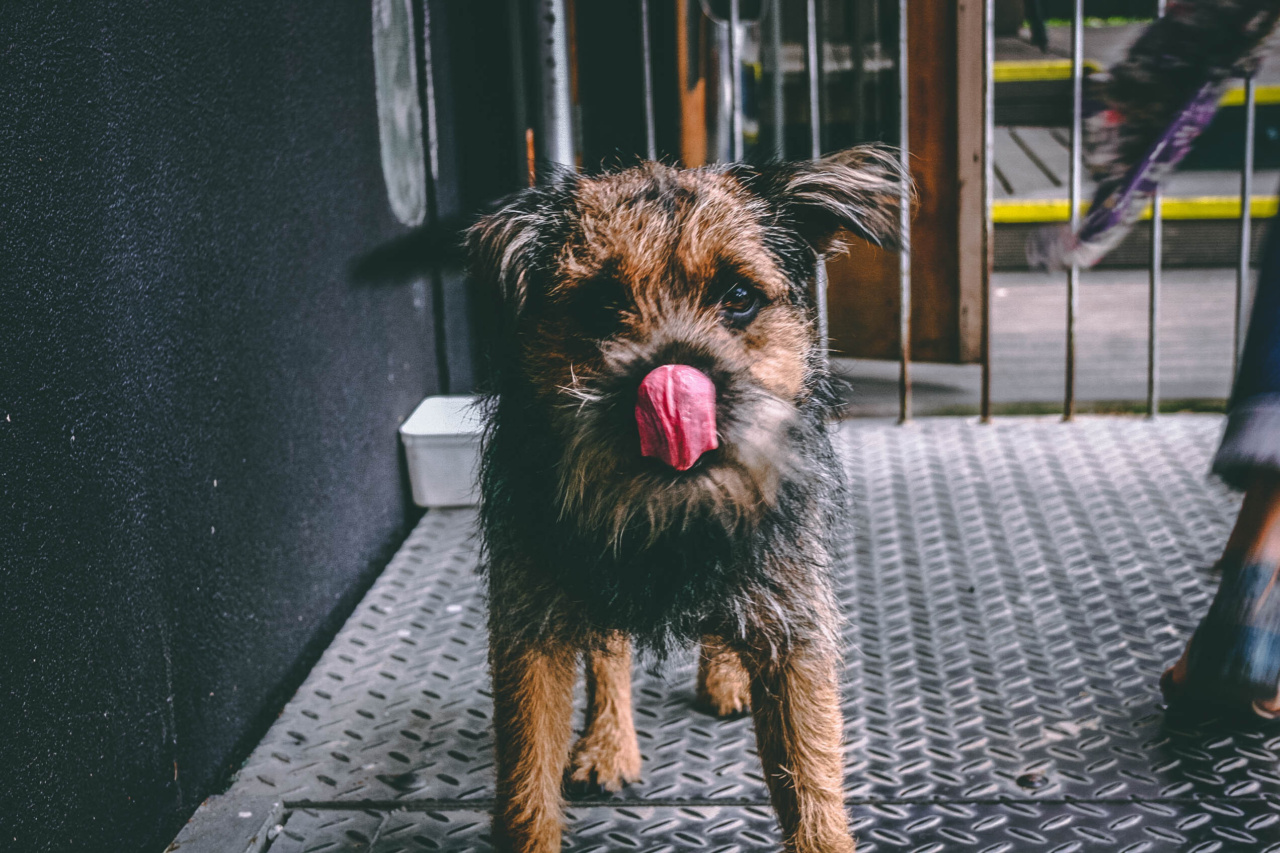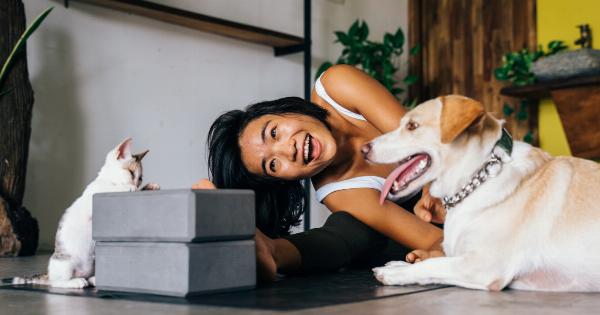Dogs lick for many reasons which include showing affection, grooming, and exploring their environment. However, when your dog is constantly licking itself, objects, or people, it may be a sign of an underlying issue that requires attention.
Below are some reasons for excessive licking and when to be concerned.
1. Allergies
One of the main reasons for excessive licking in dogs is allergies. When a dog has allergies, it may scratch or bite itself relentlessly. Excessive licking can also cause secondary infections leading to dark pigmentation, hair loss, and redness.
To determine if your dog is suffering from allergies, keep an eye on the affected areas. If they have red, irritated, or inflamed skin, it is best to consult with a vet.
2. Psychological Issues
Dogs typically lick to soothe themselves when feeling anxious or stressed. However, excessive licking can lead to digestive issues, including vomiting, and diarrhea.
If your dog is frequently licking objects or itself and showing signs of gastrointestinal issues, it may be dealing with psychological issues. You can seek behavioral or medication options from a licensed veterinarian.
3. Pain
Dogs may lick an area that is causing them pain or discomfort. For example, a dog with arthritis may lick at the affected joint. If your dog is excessively licking one area of its body, observe if it seems to be painful or sensitive to touch.
Consult with a vet if the issue persists or worsens.
4. Medication Side Effects
Certain medications, such as corticosteroids, may cause dogs to feel restless and increase their licking behavior.
If your dog started licking excessively after beginning medication, check the label for side effects, and talk to your veterinarian about alternatives.
5. Infection
A yeast or bacterial infection may also cause excessive licking in dogs. Yeast infections typically cause a dog to lick its paws; bacterial infections can lead to hot spots.
If you notice any unusual growths, discharge, or smell coming from the area where your dog is frequently licking, consult with a vet as it may need antibiotic treatment.
6. Nutritional Issues
A nutritional deficiency in dogs may lead to excessive licking and chewing behavior. Ensure your dog’s food provides an adequate balance of nutrients and vitamins, and consult with a vet for recommendations if you are unsure of its dietary needs.
7. Dental Issues
Excessive licking of different areas of their body can also be a result of dental issues. If your dog’s mouth is hurting it may lick excessively and even attempt to remove the painful tooth.
You should have its oral health evaluated by a licensed veterinarian regularly and ensure teeth cleaning is on track to prevent any dental problems poking up.
8. Obsessive-Compulsive Disorder (OCD)
Obsessive-compulsive disorder is a mental disorder that may lead to excessive licking behavior in dogs.
If your dog is persistently licking the ground, floors, or objects, it may be experiencing symptoms of OCD, which is a condition that requires careful examination by a vet.
9. Cancer
Excessive licking in dogs can be a sign of cancer, especially when it is focused on one area. Skin tumors, anal gland tumors, tumors located in the mouth, and other gastrointestinal tumors may cause excessive licking in dogs.
Visit your vet regularly if you notice abnormal changes in your dog’s behavior or body.
10. Management
Excessive licking does not always require treatment. Observe and inspect the area your dog is frequently licking, and seek veterinary care if the issue persists, worsens, or if the dog is in pain.
Additionally, ensure that your dog’s environment is safe, provide enough mental and physical activity, and limit access to allergens and chemicals as these may trigger excessive licking behavior.
Takeaway
Excessive licking in dogs should be monitored carefully. While it’s entirely normal for dogs to lick themselves and objects, consistent licking of one area or anything else may indicate an underlying issue.
Regular veterinary care, proper nutrition, and providing for your dog’s needs can help prevent these problems from arising.





























